From the Start.up! Germany Tour to successful expansion - Sensoneo seizes the opportunity to be present in Germany
It's that time of year again - the Start.up! Germany Tour is going into its next round, offering young companies from all over the world the opportunity to network with investors, network partners and potential customers from Germany. To give you an exclusive insight into the tour, we interviewed Martina Susova from Sensoneo, PR & Communication Manager, one of the start-ups that took part in our 2019 Start.up! Germany Tour.
Martina, first of all, give us some insights about you and Sensoneo.
I got to know the start-up Sensoneo in 2019, when I accompanied them to the Start.up! Germany Tour 2019 as a representative of the German Chamber of Commerce (AHK). I was already convinced of the founding idea and was sure that the Start.up! Germany Tour was a unique opportunity for Sensoneo. When the founders Martin Basila and Andrea Basilova asked me this year if I would like to work for Sensoneo as PR and Communications Manager, I was immediately convinced.
At Sensoneo, we offer innovative waste management solutions and use state-of-the-art technology to help municipalities manage their waste more effectively and efficiently, thereby reducing their environmental impact. The first idea for Sensoneo came in 2014, when the founders developed the first prototype of a sensor and the software solution. Since then, we have reached many milestones and successfully implemented more than 500 projects in over 8 countries. Recently, we even received the "Energy Globe Award" for our innovative solutions in the field of waste management with our unique software system for deposit return systems. This is of course a special honor for us. We are also currently building the world's largest intelligent waste system, which will be commissioned in Madrid later this year.
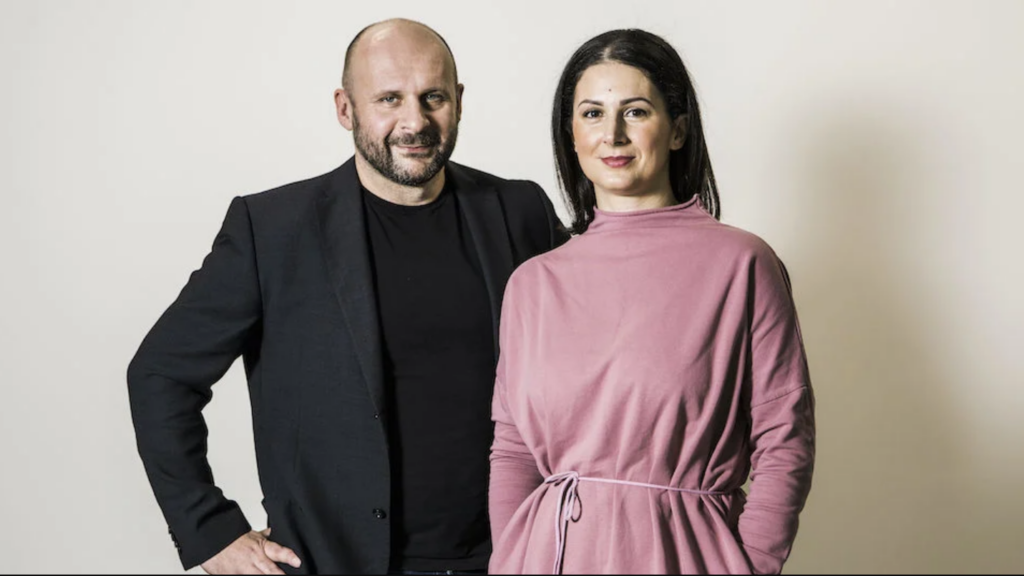
And now to the Start.up! Germany Tour and your participation in 2019. What was the background of your participation and what added value did the tour bring you?
Participating in the Start.up! Germany Tour was a great opportunity for Sensoneo to meet key stakeholders such as investors and potential customers and to market itself. As a young company, the tour provided us with an excellent opportunity to further expand our network in Germany. In this context, I would like to emphasize the B2B matchmaking, which brought us together with relevant stakeholders in the field of factory waste management. This also shows how intensively the IHK engages with its participants in the run-up to the event and invites relevant contacts in order to offer the start-ups real added value. In this way, we were able to lay the foundation for new partnerships and establish contacts with relevant multipliers in Germany. We are still in close contact with many of them and are excited to see what the future will bring!
Can you give us a brief outlook on your future plans?
We see a lot of potential in Germany and want to expand our presence. Especially to better serve our existing customers in Germany. The Start.up! Germany Tour has already given us the opportunity to look at some locations in NRW, and we now want to focus more on that. Of course, this also goes hand in hand with our goal of establishing ourselves as the leading provider of factory waste management in Germany. But we also have big plans on a global scale and want to continue to roll out our solutions for intelligent waste management.
Finally, a question that may be of interest to many of our readers. What advice would you give to other founders who want to participate in the Start.up! Germany Tour?
If you want to be more present in Germany as a founder, the Start.up! Germany Tour is definitely the way to go. The tour is an excellent opportunity to network with key stakeholders and build relationships that are very important for building a business. Long-term relationships and networks are especially important, and you can count on them when you need them. Founders should be open to the great opportunities the tour offers and see it as an opportunity to enter the market.
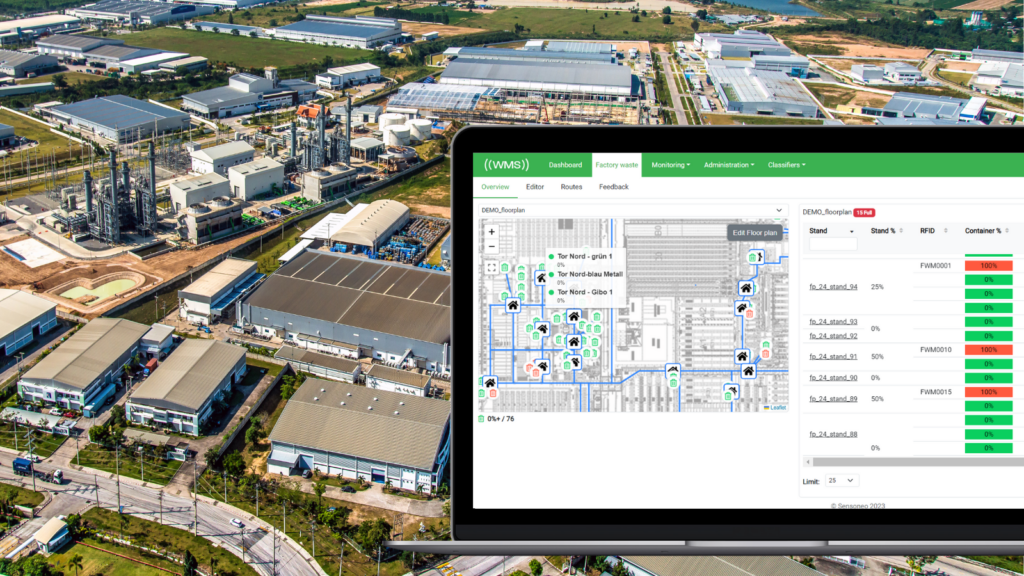
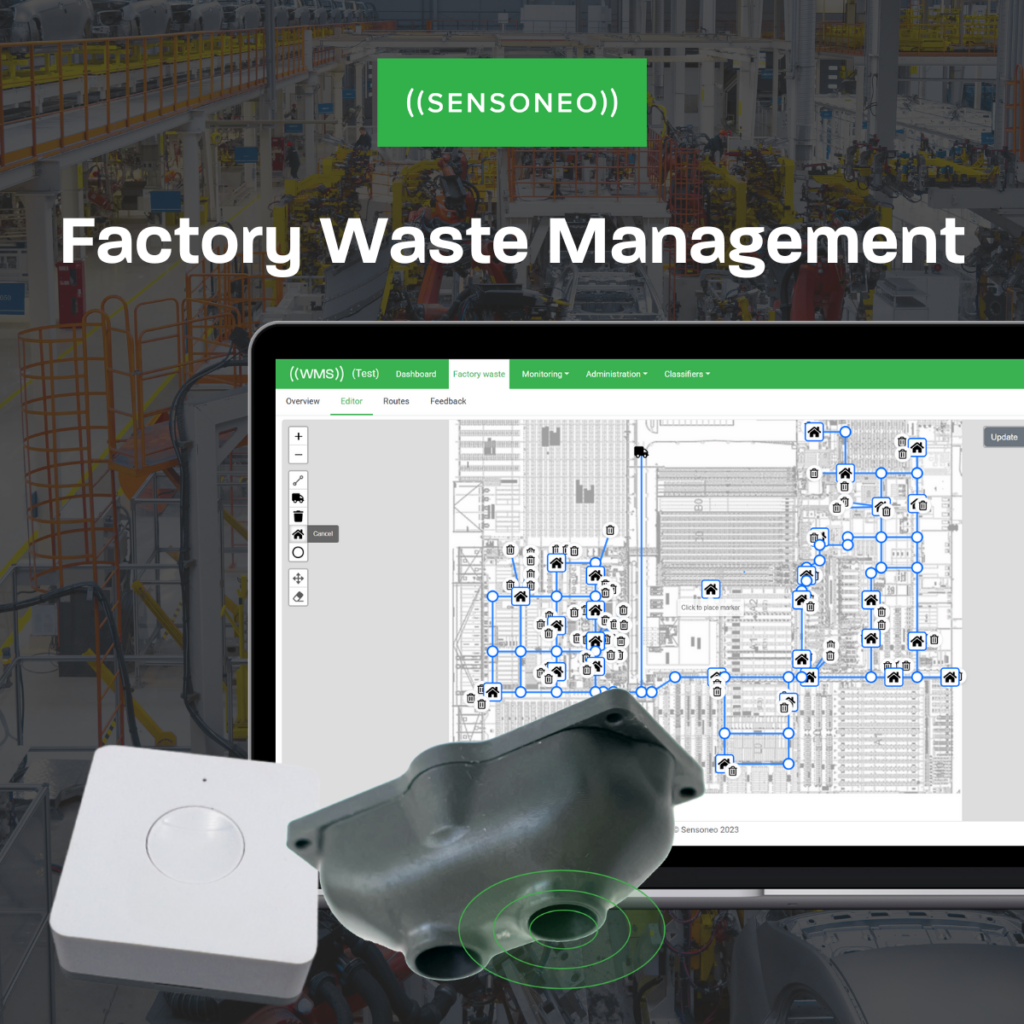
In todays interview we had the pleasure to talk with Mrs. Silvia Braghini from AHK Italy. She is Project Manager for Market & Business Development in Milan and shares with us her thoughts about the Italian startup landscape and what part the AHK Italy is playing in this ecosystem.
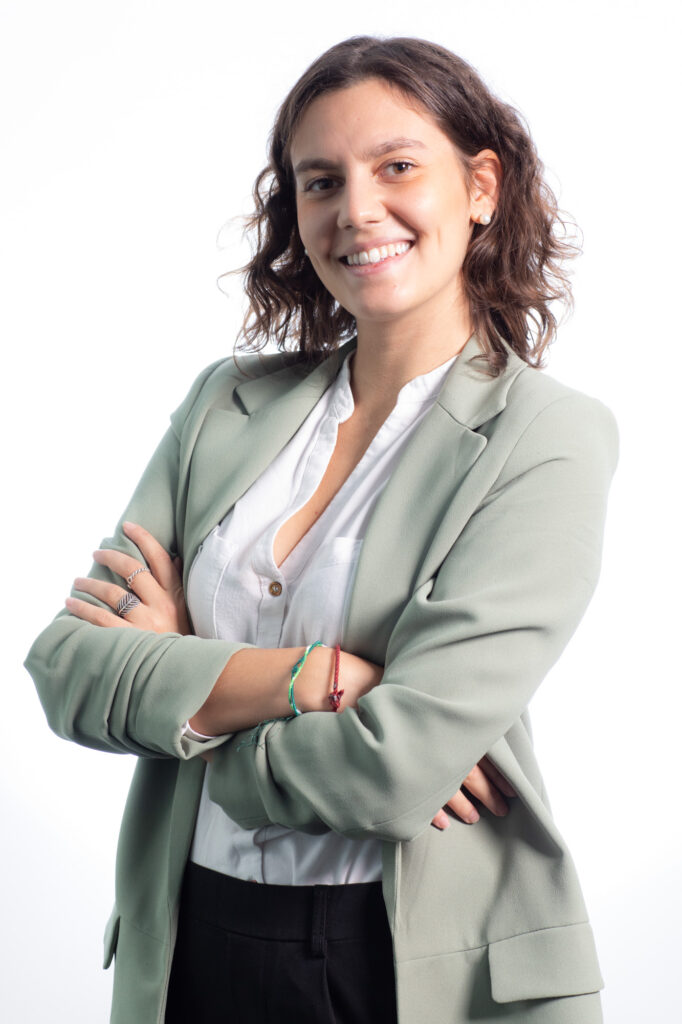
Mrs. Braghini, what role is the AHK playing in Italy's startup scene?
The AHK Italy has been working on establishing its presence in the Italian Innovation ecosystem for several years by now. The partnership with some of the most influent Innovation facilitators and players across Italy, among all universities, accelerators, incubators, hubs, research centers and banks that support accelerator programs and invest on startups, gives the AHK Italy the possibility to experience the innovative pulse of Italy and in several occasions also to be part of it.
Given the strong pragmatical approach of our Chamber of Commerce our main goal in this context is to connect the world of industry with the innovative world and in this sense, we try to create concrete business opportunities for the Italian startups and to connect them with potential business partners, through different initiatives and partnerships, but mainly thanks to our own start-up contest “Business Meets Innovation”.
How are startups changing the economic landscape in Italy? Are there regional differences between the scenes from Milan to Campania?
The Italian economic system nowadays demands more and more to reinforce the collaboration between SMEs enterprises and big companies and to connect the world of research and development with the industry. A big part of the measures of PNRR, Piano Nazionale di Ripresa e Resilienza (the NRRP, National Recovery and Resilience Plan) is dedicated to accomplishing these goals and one of the main drivers are startups.
In the past few years the concept of generating innovation through a Bottom-Up approach has been attracting many Italian companies and institutions and is allowing them to rethink their business models and their priorities for the future.
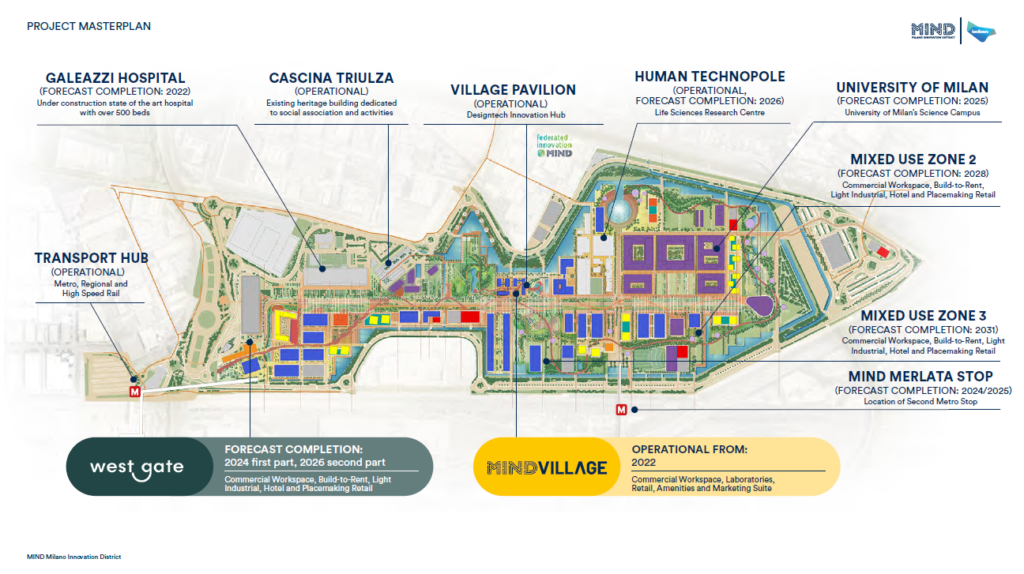
The main innovation areas in Italy can be found in the most industrialized and progressive regions of the country; the most significant areas are the following: Lombardy, particularly in the surroundings of Milan, Emilia Romagna, Piedmont, and Veneto. However, in the last years there has been a considerable increase of awareness of the startup ecosystems in the South of Italy, especially in the regions of Lazio, Campania, Tuscany, and Apulia. These regional ecosystems arise for the most part from renowned University Hubs (respectively Politecnico di Milano, Università di Bologna, Politecnico di Torino, Università degli Studi di Padova, Università degli Studi la Sapienza, Università degli Studi di Napoli Federico II and Politecnico di Bari) and are based on the research departments of the universities. They develop their expertise and are the basis for the creation of new business ideas and solutions. Beside that these regions and innovative centers are supported by some very solid incubators and accelerators, as Polihub and ComoNExt (Lombardy), Lazioinnova (Lazio), 012factory (Campania), Almacube (Emilia Romagna), i3p (Piedmont).
What makes Germany so attractive as a destination for Italian startups?
Given their expertise and approaches, as German-Italian Chamber of Commerce, we can say that the combination und exchange in between German and Italian companies are in practically any sector a pretty good match, or even better to say, they are often quite complementary.
In the innovative sector the Italian talents are attracted by the German economic system, due to its solidity, progressive commitment, dedication to research and development activities and pragmatic approach.
The only fact that Germany is divided into regional innovative Clusters, based on their focus field, makes it easier for the Italian startups to find their way around and creates a solid base of trust, in order to establish the Italian expertise in Germany.
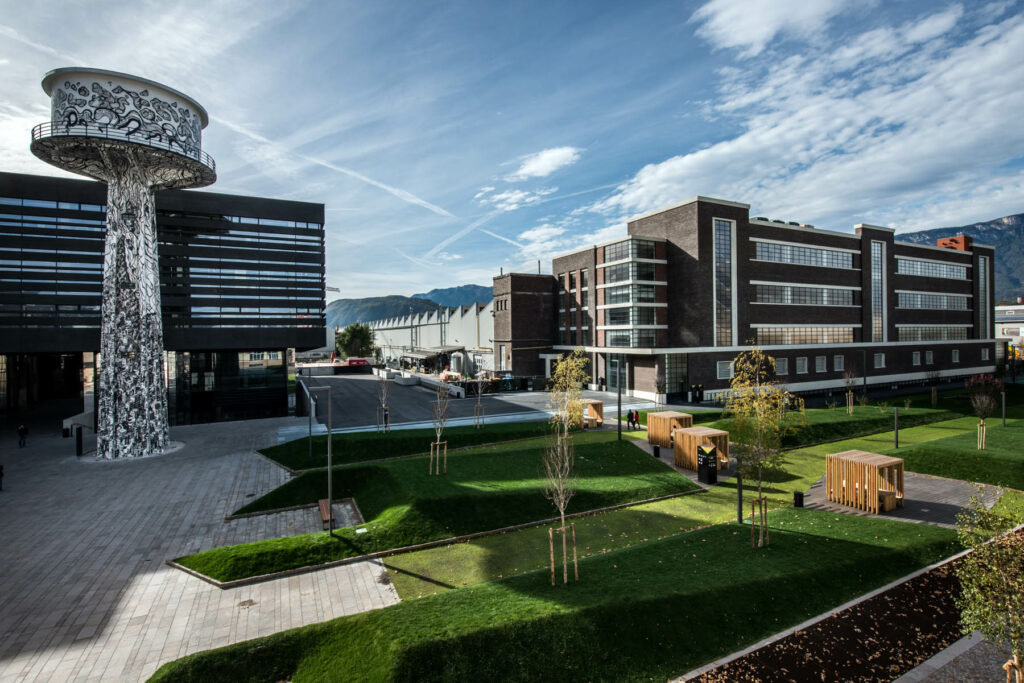
What piece of advice would you give to your startups participating in the tour?
To our Italian participating startups, I would say that they have the important mission to show the German investors of the Ruhr region what drives Innovation in Italy and why it’s worth it to explore our ecosystem and to support it!
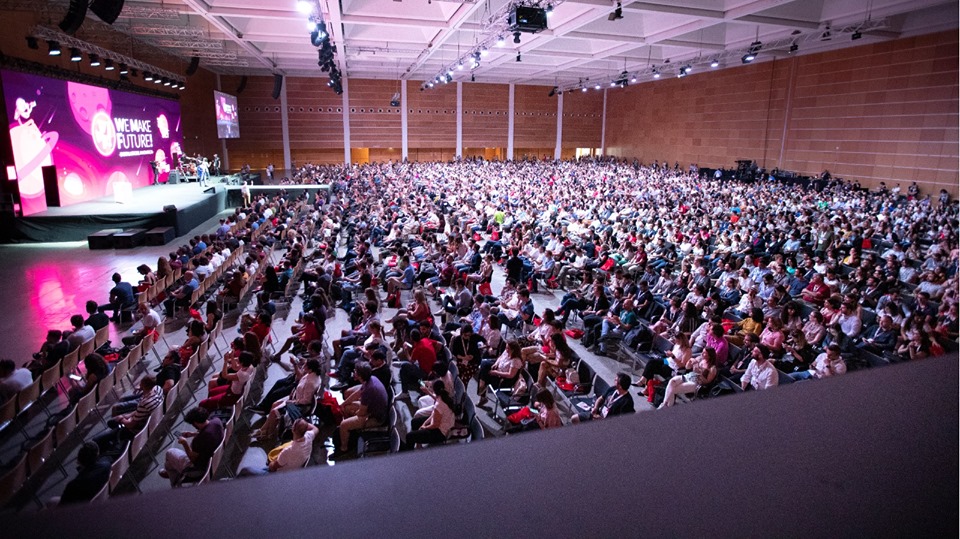
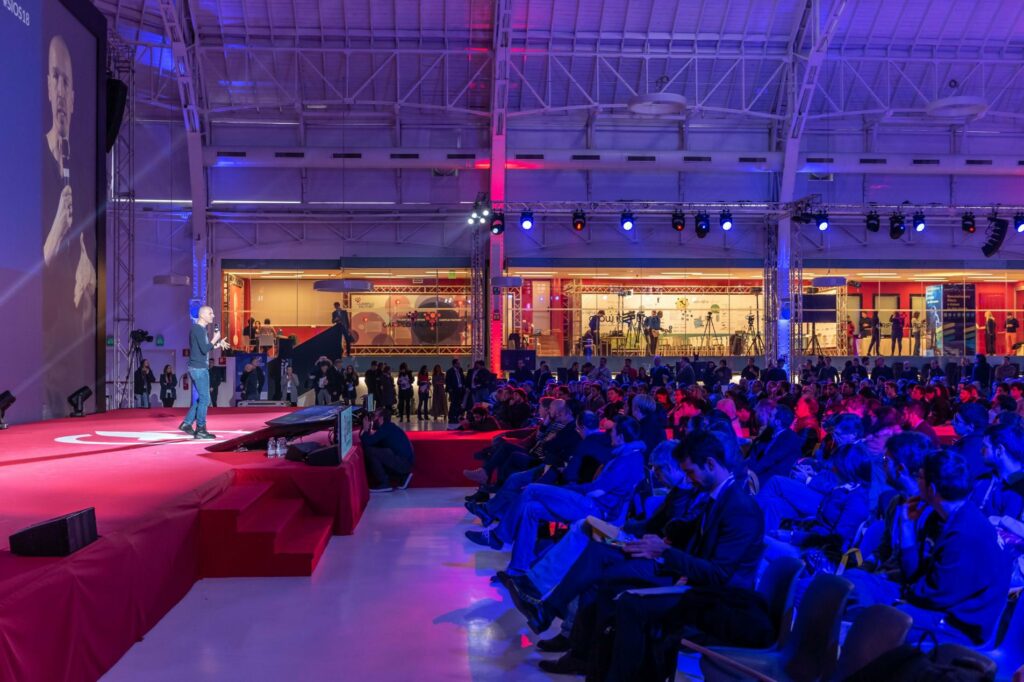
Moreover, I would recommend them to present a clear purpose of their solutions and a concrete business model, but yet to maintain the creative and flexible marks that characterize any Italian entrepreneur. This is definitely the key for our Italian startups to establish their presence and to succeed in Germany and worldwide.
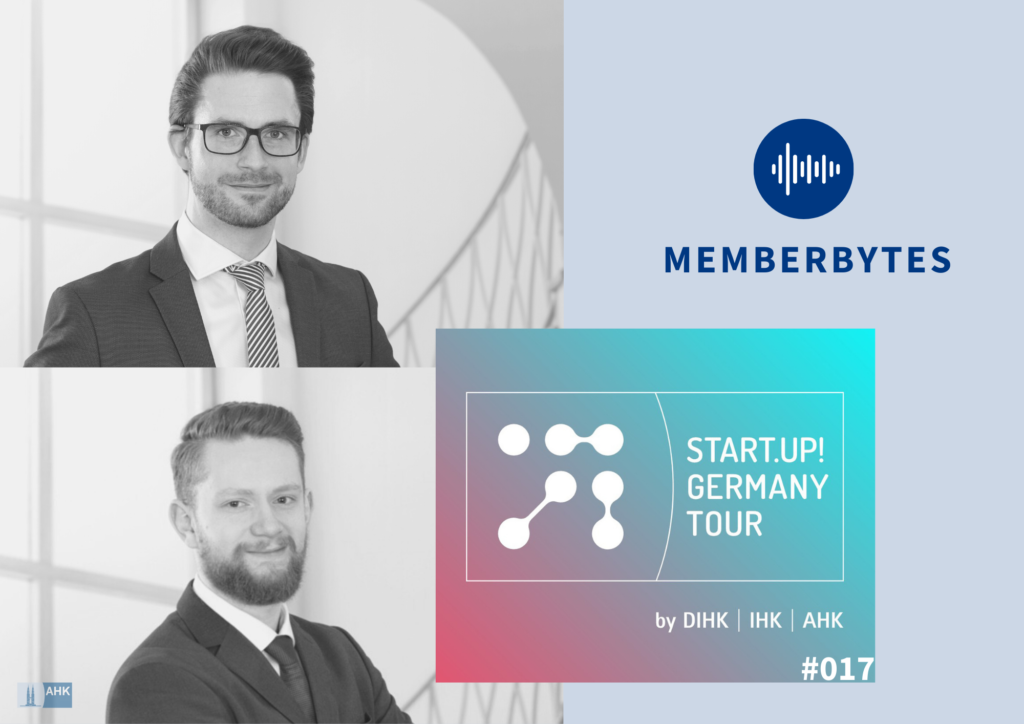
Dominik Stute and Nick Neidl, both one of the main organizers of the Start.up! Germany Tour have been invited to the podcast series „Memberbytes” by the Malaysian-German Chamber of Commerce (AHK Malaysia) to talk about the Rhine-Ruhr Area and the Start.up! Germany Tour.
The podcast series of the Malaysian-German Chamber of Commerce usually features interviews with business people about Malaysia, Germany and the business in Asia.
In episode 17, Sebastian Kirsch, Manager Member Support by AHK Malaysia talked with Dominik Stute and Nick Neidl about the industrial heartland of Germany – the Rhine-Ruhr region – and furthermore about the Start.up! Germany Tour, which brings international startups from around the world to North Rhine-Westphalia, Germany and show them the benefits of this driving location.
But best listen for yourself.
Here: https://themgccpodcast.buzzsprout.com/723699/10758345-memberbytes-017-dominik-stute-nick-neidl-startup-germany-tour-ihk-dortmund or just click on the “Spotify” button on the left hand corner.
Startup MedApp from Krakow to North Rhine-Westphalia
MedApp S.A. a Polish medtech startup that was founded in Krakow, Poland is now expanding its business to Dusseldorf, North Rhine-Westphalia and from there to the DACH region. As a former startup participant of our Start.up! Germany Tour 2021, MedApp took part in the several program parts of the Start.up! Germany Tour like the pre-program, the Inter.national! Startup Contest and has been among the 15 finalists of the Grand Final of the Start.up! Germany Tour 2021 during the main program.
With this impulse through the tour and the intensive further support of our partner organization NRW.Global Business, MedApp has established a German subsidiary in Dusseldorf. Together with the CEO of MedApp S.A. Krzysztof Mędrala, we talked about its Start.up! Germany Tour experience and about its settlement to NRW.
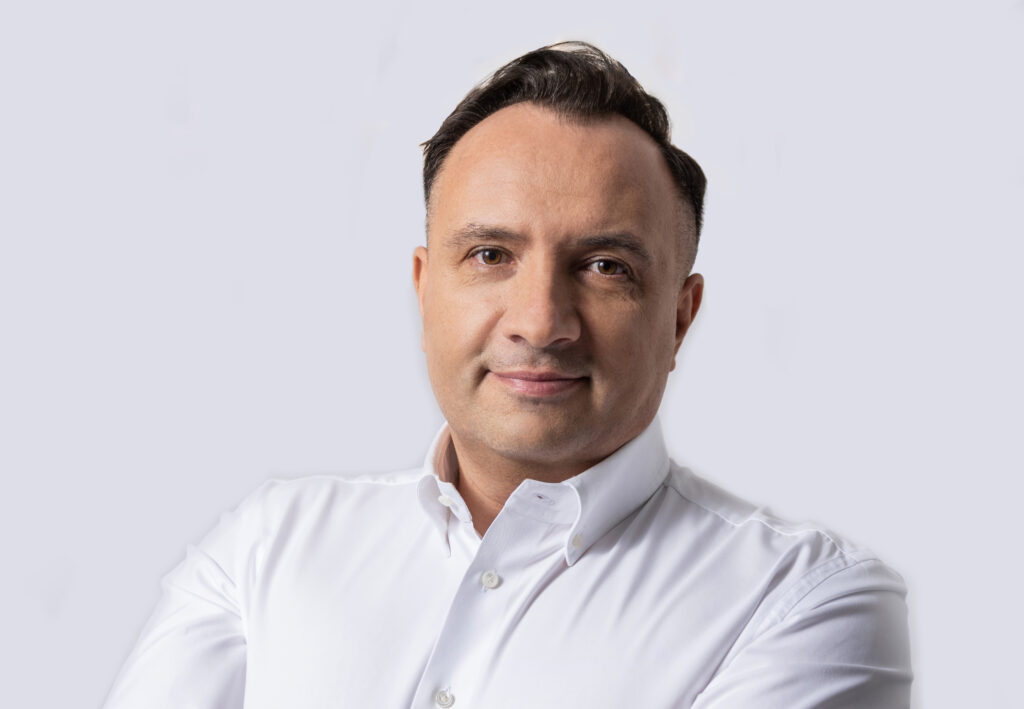
Dear Krzysztof, tell us about your Start.up! Germany Tour (SUGT) experience?
Hello everybody! At the Start.up! Germany Tour’s Grand Final we as MedApp experienced a fantastic atmosphere with lots of excellent organized meetings afterwards. The overall international environment of SUGT was inspiring and without doubt a worth attending experience.
Why did you participate in SUGT? What have been your goals? Why Germany?
As the selected startup from Poland, we have been invited to take part in the on-site experience of SUGT. This was a true award for us, especially as the German market is a natural place of geographical expansion for us.
How did it go after the SUGT experience with MedApp? And a settlement?
The strategy entering the German market has been on our mind for some time already. The attendance of meetings with certain people and institutions afterwards finally motivated us to set up a company, MedApp Germany in Dusseldorf, and to search for first local employees.
What was the idea of an employment in North Rhine-Westphalia, Germany for the MedApp?
Our international business plan includes offering our innovative technologies in the DACH region (Germany, Austria, Switzerland) and our new Dusseldorf office would serve as a crucial point for the region. When we see the commitment of the Start.up! Germany Tour community, we believe this was the right decision to set up a company in Germany. Far-reaching growth prospects for our technologies in Germany are ahead of us!
Based on your experience, what can you recommend to other startups that want to do business in Germany?
It is worth attending local events and meetings to better understand the market and its opportunities. Finding partners and local business leaders would play a key role to enter the German business ecosystem which should facilitate business growth. I would play a key role to enter the German business ecosystem, which should facilitate business growth. I would also propose to search for national organizations that support expansion abroad like NRW.Global Business or the Chambers of Industry and Commerce.
In todays interview we are welcoming Mr. Bruno Vath Zarpellon from AHK Brazil in. He is director of the Innovation and Sustainability Department in São Paulo and shares with us his thoughts about the winning startup from Brazil, Pix Force and the potential of the Brazilian startup ecosystem.
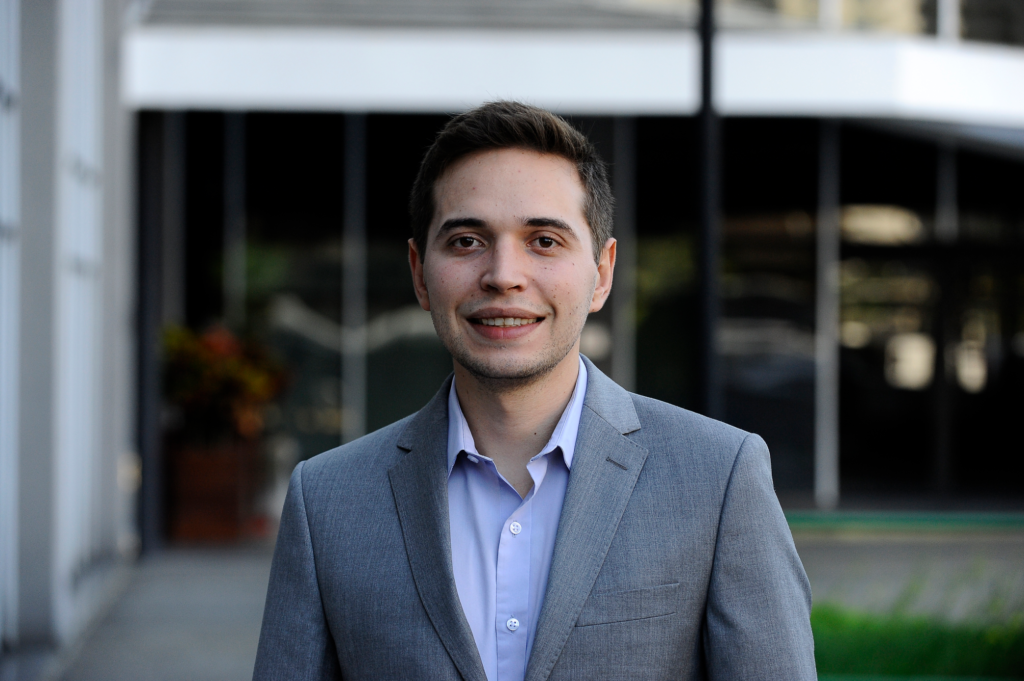
First of all, how did you find the startup Pix Force?
We can say the startup found us. Pix Force signed up and was selected twice for our acceleration program called “Startups Connected”. On the fourth edition, the startup won the challenge submitted by Voith Paper focused on the pulp and paper industry. Two years later, Pix Force won the sixth edition of Startups Connected providing a solution for Siemens in the energy efficiency sector. Startups Connected’s goal is to connect startups and big AHK-member companies such as BASF, Bayer, Siemens and Voith to work together.
Is the startup Pix Force representative of the Brazilian startup ecosystem?
Absolutely! According to the main startup ranking in Latin America, promoted by 100 Open Startups, in 2018 and 2019, the startup reached the first position in the Computational Vision category. In 2020 and 2021 it led the list of innovative businesses in Artificial Intelligence, proving its expertise in an increasingly competitive market. We are proud to know that Pix Force, a startup created in Brazil by Brazilian entrepreneurs, is succeeding and already has an international presence.
With this success of Pix Force, would you say that the startup scene in Brazil is booming?
Pix Force’s success is proof that the Brazilian startup scene has been booming for some time now. Even during the pandemic (2021), investment in startups tripled, surpassing 8 billion dollars and creating 10 new unicorns. Altogether, Brazil already has more than 20 unicorns. It is worth mentioning that today we have almost 15,000 startups in the country, around 3 times more than we had 5 years ago. Not to forget the 400 agents such as incubators, accelerators and other institutions that promote the startup scene here. Besides the city of São Paulo, the main hub for Brazilian startups, other cities also have strong startup communities, such as Florianópolis and Porto Alegre (both in the southern region) and Belo Horizonte (in the southeast).
What conditions (positive and negative) can startups find in Brazil?
I believe that in Brazil the main difficulties for the development of startups are not very different from the difficulties faced in other countries. Among them we can mention the high and complex tax burden, the bureaucracy for closing companies, the lack of support for entrepreneurs before becoming startups, access to financial resources for startups at certain maturity levels, in addition to the difficulty of accessing new clients and international markets.
Despite the barriers, the Brazilian market has several positive aspects for startups. With around 15,000 startups in the country and more than 20 unicorns, the pandemic did not prove to be an obstacle to market growth in 2021 - which represents its dynamic and the positive impact provided by different facilitating factors, which include: the population and the huge domestic market (the largest in Latin America), the receptivity and growing access to investments (having surpassed South Korea in Venture Capital), and the presence of several sectors in growth and expansion, such as agribusiness, renewable energy, environmental solutions and the health sector. Furthermore, the country also has an increasing development in infrastructure, with an estimated investment increase of 40% over the next 5 years, in addition to its remarkable availability of natural resources. Other than that, more than 80% of the population and all residences in Brazil are connected to the internet, with mobile devices being the most used.
Where are the potentials of the country?
Investors' favorite sectors include insurance and financial services, healthcare, software, logistics and retail. Other sectors such as Cleantech and Biotech have been showing great growth potential due to the characteristics of Brazil and global tendencies. A good example is the Green Hydrogen sector. Although the topic is still quite new and there are still few initiatives in Brazil, the country has 83% of its electricity matrix coming from renewable energies, therefore, occupying the first place among countries in the production of clean energy. This position is mainly due to its geographic and climatic characteristics, which enable the country's potential to become one of the largest producers and exporters of Green Hydrogen globally.
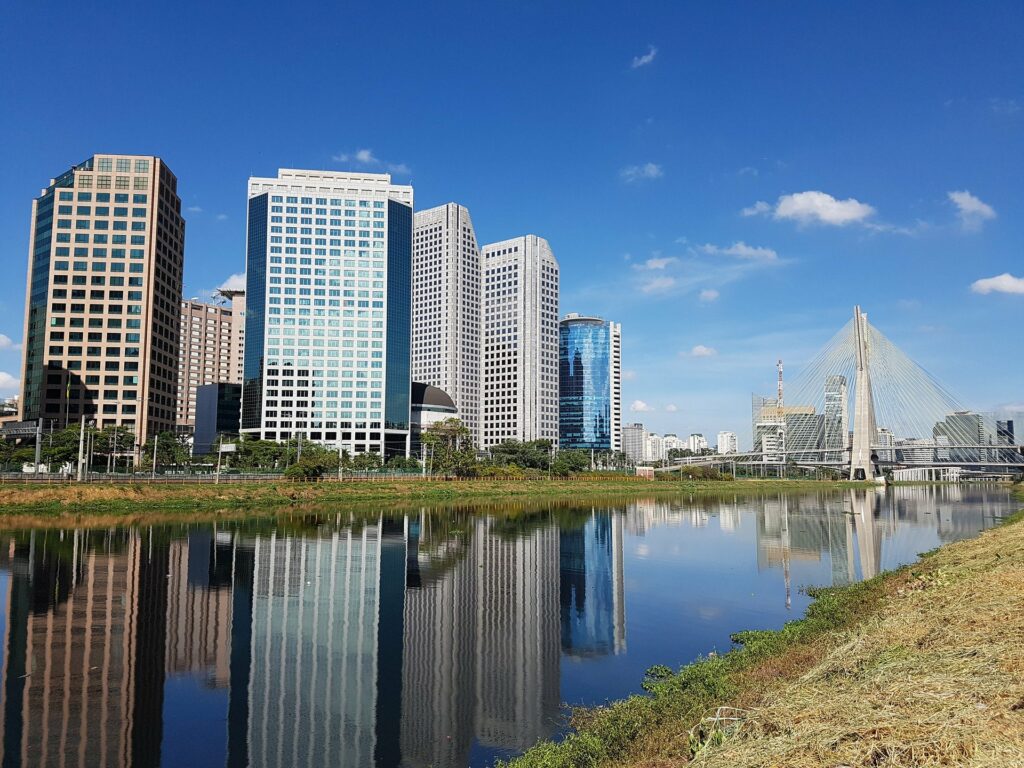
Is the government or the education system already setting a course or incentivizing start-ups? What are your experiences?
The Brazilian government has been carrying out a series of actions to promote the local startup ecosystem. In the legal field, the Legal Framework for Startups was released last year with the goal to encourage the creation of new businesses, offering more legal certainty for investors. Among the main points of the document, we can mention:
- Legal definition of a startup (e.g.: limit of 16 million reais as annual billing / about 2.700,00 euros)
- Angel investor legal protection
- Possibility of directing innovation incentive resources to startups
- Possibility of applying stock options in employment contracts
- Creation of an experimental regulatory environment (regulatory sandbox)
As for the incentives, today there are several initiatives that encourage entrepreneurship in its most diverse phases. Institutions such as SEBRAE, SENAI, FINEP, BNDES and EMBRAPII offer various types of subsidies via non-refundable resources at the national level, among other forms of incentive.
Regarding the bilateral scope with Germany, there are also interesting opportunities, EMBRAPII (Brazilian Company for Industrial Research and Innovation) and the CORNET German Network formalized in 2019 a partnership that allows small and medium entrepreneurs, including startups, to develop RD&I projects with industrial sectors of member countries participating in the network.
Another example of incentive carried out by the Brazilian government is the Rota 2030 program, which aims to support the strengthening of the automotive value chain, promoting cooperative projects in R&D in Mobility and Logistics.
Would you describe specifically what your role is as an AHK in the ecosystem?
The role of the AHK São Paulo is to promote open innovation between member companies and startups from Brazil and Germany, as well as to promote bilateral cooperation between the two countries.
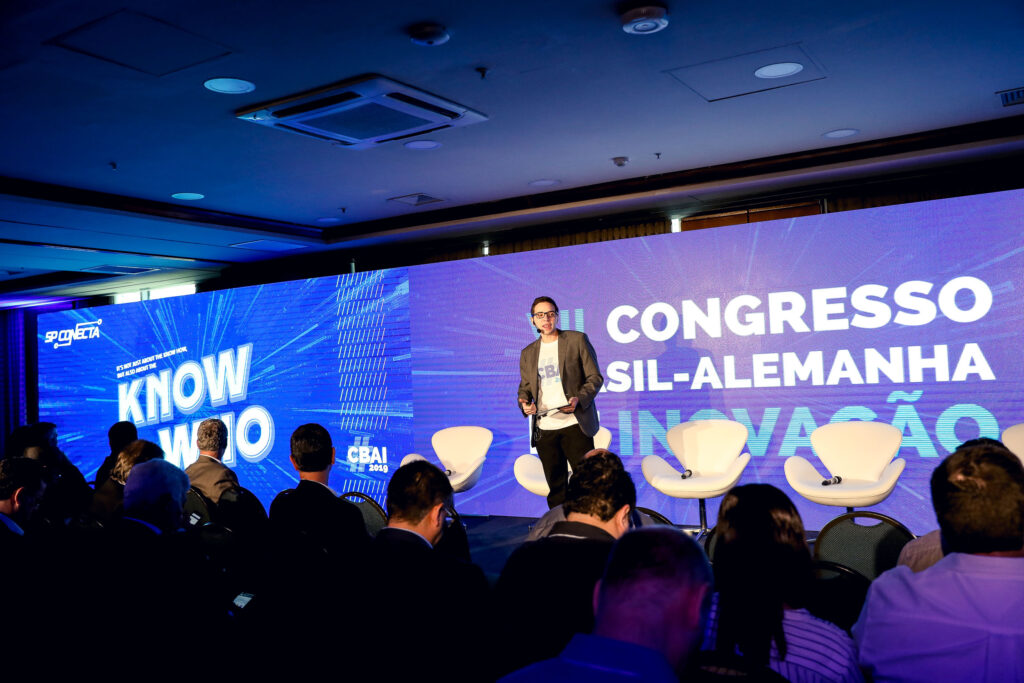
Last year AHK São Paulo was awarded among TOP 3 Startup Ecosystem in Brazil by the 100 Open Startups Ranking. This means that we are one of the most recognized actors in the Startups ecosystem by the practice of open innovation. Almost 400 startup programs have been screened in this ranking and graded by startups, who must select the institution that cooperated the most with their development. The Ranking 100 Open Startups is the main reference in the local market and the largest ranking in Latin America. We have been recognized at the award since 2019 and over the past few years, several startups that have gone through our Startups Connected program were recognized in the 100 Open Startups Ranking as the most innovative in their sector, including Pix Force.
To make it happen, we promote different activities, such as:
- Startups Connected Program: Founded five years ago, Startups Connected is an acceleration program, where selected companies and startups work on a concrete innovation project, based on a business challenge. We support the execution of these projects, facilitating interaction between the parties and offering agile development methodologies and connection with partners in different areas to obtain effective and measurable results. The challenges, in addition to solve business needs, seek sustainable solutions based on the 17 UN Sustainable Development Goals (SDGs).
- AHK Innovation Day: The purpose of the event is to present the main trends and best practices in a particular sector. After lectures and panels, a matchmaking takes place, holding a series of thematic meetings intending to connect companies and startups, which contributes to the generation of new businesses in a short period of time.
- Immersions in the German Innovation ecosystem: Aiming to contribute to the advancement of innovation in Brazil, we organized delegations to Germany, cradle of the 4th Industrial Revolution, so that Brazilian companies can get to know and understand how renowned German companies such as Bosch, Festo, TRUMPF, among others, have been implementing innovation in their organizations, processes and products.
- Studies (e.g.: Startups 4.0): As an example of study carried out by our chamber, since June 2021 we have been looking for startups operating in Industry 4.0 to carry out research on the profile of entrepreneurs, the context of startups and their relationship with other companies. In the first stage of this study, which was completed last year, we applied a survey to around 90 startups, validated the survey form and methodology, and compiled the preliminary results. From now on, with a 2.0 version of the survey, we are increasing the number of respondents so that we can have a statistical analysis that better represents the national ecosystem, once this project has been developed under the leadership of the Brazilian government.
Can you describe a stereotype of a typical Brazilian founder?
In general, Brazilians are very positive and creative people. We have a saying that tells a lot about the way we work and organize our personal lives: “Brazilians never give up”. Personally, I think many people identify to this saying because, despite challenges, we always come with a way of turning things around – and, of course, these characteristics are reflected a lot in the profile of the entrepreneurs in the country.
What are the connections to Germany?
Since 2008, Brazil has been a strategical partner for Germany and one of the main trading partners in South America. Despite the challenges that cultural and social differences between the two countries may cause, business and R&D connections have grown over the years. Just our AHK alone has been representing German economy in Brazil for the past 105 years. São Paulo is also the main German industrial location outside of Germany.
In your opinion, what makes the German market interesting for Brazilian startups?
Germany can be a perfect place for a soft landing of Brazilian Startups and the entrance for the European market. Entering the European market is a great attraction for Brazilian startups, since it provides access to largely skilled labor, strategic positioning enhancement and expansion of the consumer portfolio. Also, successfully selling to Germany is an important indicator to the business – if a technology can be sold under German sieve, which is very professional and detail-oriented, it means it is ready to be sold anywhere in the world. Germany is home to one of the most mature markets to disruptive solutions, which comes along with a positive perception for higher value-added products (e.g.:“green” products and solutions, and high technology) – a path in which many Brazilian startups have been going through.
German investment to attract foreign startups is algo impressive. Bavaria alone is investing 1,5 million euros for the construction of a Deep-Tech hub and the project AI+MUNICH is receiving 5,9 millions euros to create and develop and IA alliance in Munich.
What were your reasons for participating in the Start.up Germany Tour?
We saw a great opportunity for our best startups to explore one of the most promising hotspots for startups today and connect with large corporations, multinational companies and representatives of the "German Mittelstand", as well as some of the best startups in the German ecosystem.
Initiatives like this are essential to support the internationalization of Brazilian startups and insert them into a more competitive environment, in which they can increasingly thrive. Germany is globally for its strength in innovation and, when we talk about startups, it couldn't be different: the country is one of the most advanced in Europe when it comes to numbers related to startups. We are proud to be part of the initiative because that is our mission as one of the most important players in the open innovation Brazilian ecosystem.
Today we welcome Angeline Marokoane to our blog series. Angeline is from AHK South Africa and shares with us her insights into the country's very interesting startup ecosystem. Enjoy reading!

Forecasts predict that the expected population growth of working-age people in South Africa will increase. How can this growth be used to increase the frequency of high-potential founders accordingly?
There is a huge opportunity through upskilling the youth, around 37% of the population in 2010, with entrepreneurial and digital skills. This can unlock new businesses and supply existing businesses with complex skills required for the digital economy.
In your opinion, what currently distinguishes many founders? For example, are they particularly risk-averse or do many start up out of necessity?
It is a mixture of both actually, entrepreneurship is a risk as it requires the entrepreneur at minimum to have an income for roughly 3 years. Starting a business does not give any founder such a guarantee. In a country that does not have sufficient early stage funding that can support founders, a large risk on behalf of the founder needs to be taken. Secondly, as a developing country, South Africa faces a lot of developmental problems that are deeply rooted in inequality. So the opportunity to address all these challenges are vast.
Is the government or the education system already setting a course or incentivizing start-ups? What are your experiences?
Yes- there is a government-owned start-up hub called The Innovation Hub, according to its CEO, Pieter Holl, the South African government is in full support of innovation, especially the disruptive part of innovation, because there needs to be a disrupt to ensure there is no monopoly taking place because there needs to a fair and equal playground. There was a Start-up Act position paper that was released during the SA Innovation Summit 2021 which took place online in September 2021. If SA were to implement a Start-up Act, this legislation would fast-track the development of the start-up sector and spur innovation, which will in turn significantly contribute to the country’s economy. There is also SEDA which is another state funded incubator for early stage businesses. The Technology and Innovation Agency supports early stage ventures as well through funding and incubation. Small government grants have been made available through the Support Programme for Industrial Innovation. The education system still lacks in developing entrepreneurial skills at an early stage.
Would you describe specifically what your role is as an AHK in the ecosystem?
Or role is to facilitate and support business opportunities, synergies and innovative co-operations and joint-ventures between companies from South Africa and Germany and to encourage.
What are the connections to Germany?
The GIZ has been supporting local incubators and accelerators. The Goethe Institute as well through advocacy. We also have our working relationship with the The State Development Agency of the Free State of Thuringia (LEG Thüringen) in Germany which is looking for opportunities in SA for companies from that federal state of Germany, and also for chances to cooperate with suitable companies in South Africa. Anja Tambusso-Ferraz, our regional representative for the Western and Eastern Cape of the SA-German Chamber of Commerce, and who represents the State Development Agency of the Free State of Thuringia, says there is a lot of potential for cooperation and is currently looking for opportunities to create collaborations. "There [already] are some real good interactions and business ventures developing between SA and Thuringia – for example in the fields of sustainable building concepts, e-mobility, medical equipment and R&D projects in the field of sustainable textiles."
In your opinion, what makes the German market interesting for South African startups?
Germany is at the forefront of innovation and development. It has 10 000 scientists within renowned universities and research institutes like Fraunhofer, Leipnitz Institute which makes information and opportunities more easily available for keen entrepreneurs.
What were your reasons for participating in the Start.up Germany Tour?
Because Germany is at the forefront of innovation and development and funders are eager to invest in new innovation ideas and companies that will be at the forefront of development. For us it is an opportunity to expose our innovative thinkers to this broader world and their success can inspire up and coming entrepreneurs to aspire to reach the top.
Even after our grand finale of the Startup Germany Tour 2021, we will continue with exciting contributions. Today we have Andrea from Sensoneo on the starting line for you. Sesoneo are one of our most interesting SUTG alumni startups.
Enjoy reading the interview.
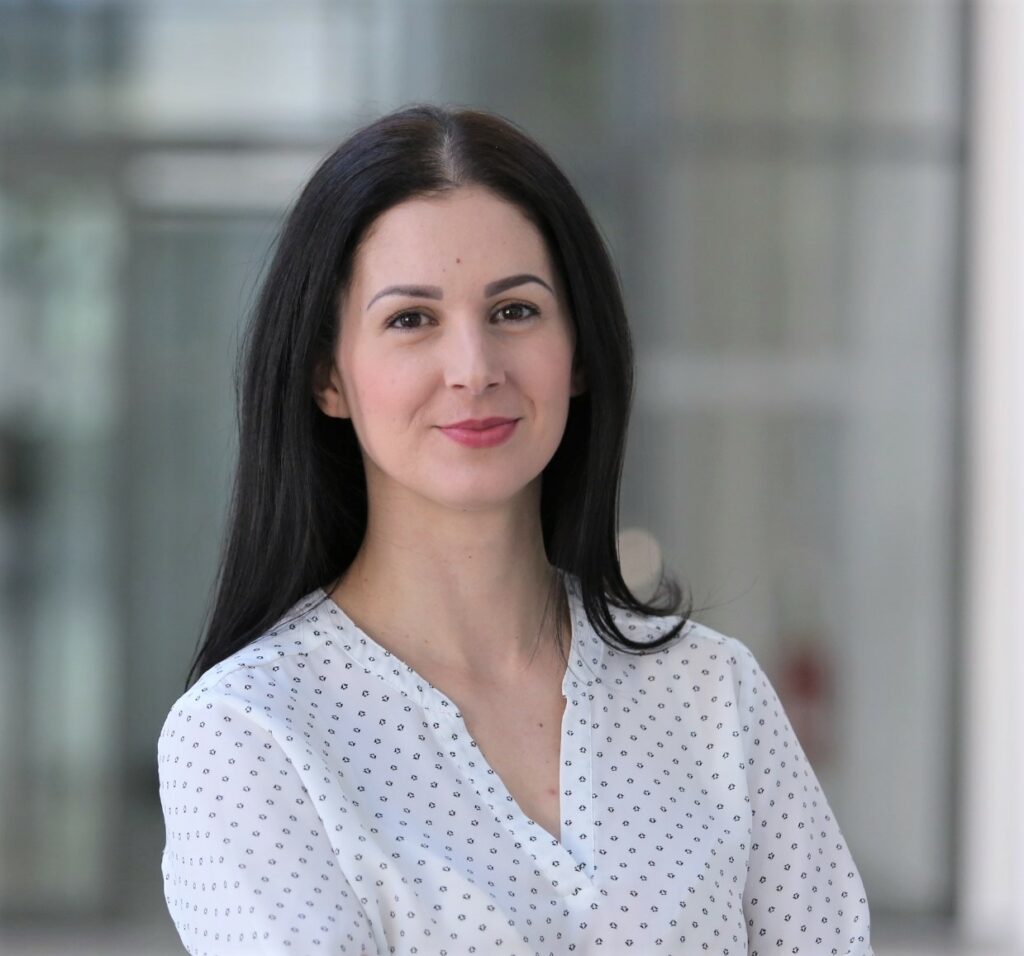
Welcome Andrea, can you nevertheless briefly summarize for our readers what your business is?
Surely, our main focus is data-driven waste management. We design, develop and produce HW, SW, and analytical tools to help our customers to cope with the biggest challenges in today’s world of waste management – lack of efficiency and transparency. As an outcome, the Sensoneo solution enables the customers to achieve a 30 % – 63 % reduction of waste collection routes and 97 % accuracy on actual waste production.
What progress has Sensoneo been able to make in the last year?
We have managed to significantly expand our product portfolio and started some of the largest smart waste management deployments in the world - this involves the installation of different monitoring and tracking solutions to accurately trace the actual waste production, optimize the waste collection process, and automatically verify the collection service. In some cases, we have deployed purely SW-powered solutions to pilot dynamic waste collection based on an automated routing engine for specific needs of waste collection vehicles. And last, but not least, we have worked on prototypes that would facilitate "Pay-as-you-sort" models and "Pay-as-you-throw" models for flat houses.
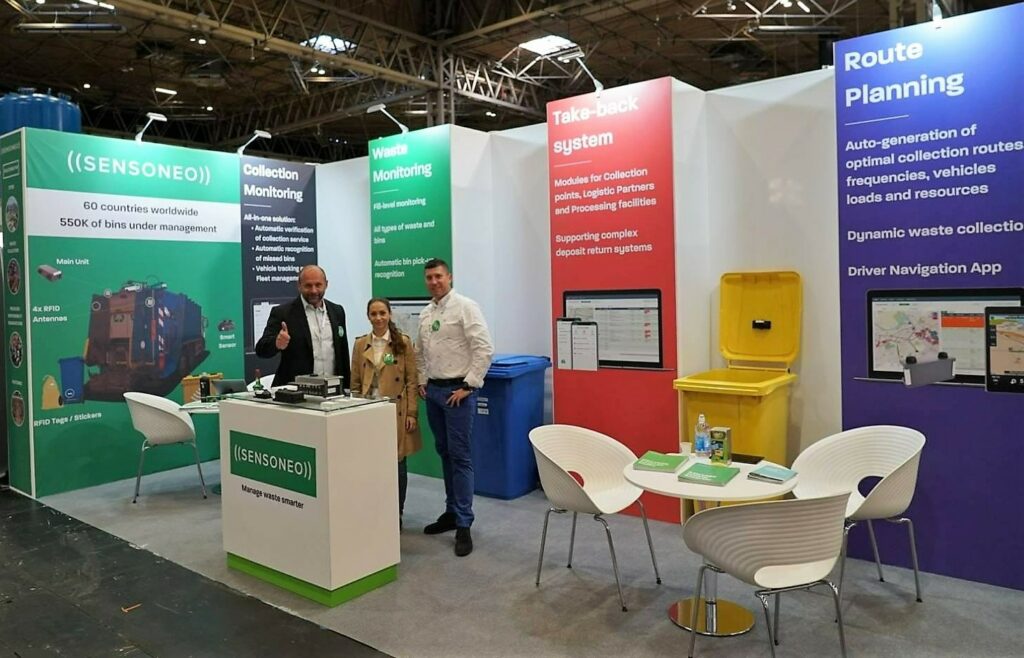
What are the next steps for you?
We certainly plan to complete our R&D projects to provide our customers with other innovative ways how to make waste management easier and more efficient. We also plan to focus on further business development and onboard new partners who operate in regions to combine our unique technology with their local know-how.
As mentioned at the beginning, you have already been a tour participant. What were your reasons for participating in the tour back then?
The competition has a high reputation and it gathers dozens of innovators into a single place. We highly appreciate that the event interconnects the start-ups with the relevant audience and also the role of IHK that continuously support this event and promotes it across the start-up community.
What has the tour effectively brought you?
Very valuable networking, international visibility, and a very useful insights from the German market.
What makes the German market interesting for you?
The German market is incredibly large, very mature, and full of opportunities for both streams that we target - B2B & B2G. The regions are quite different from each other, but what the business in Germany values, is innovation, bringing new approaches, and improvement of current processes. And this is exactly what our proposition is about.
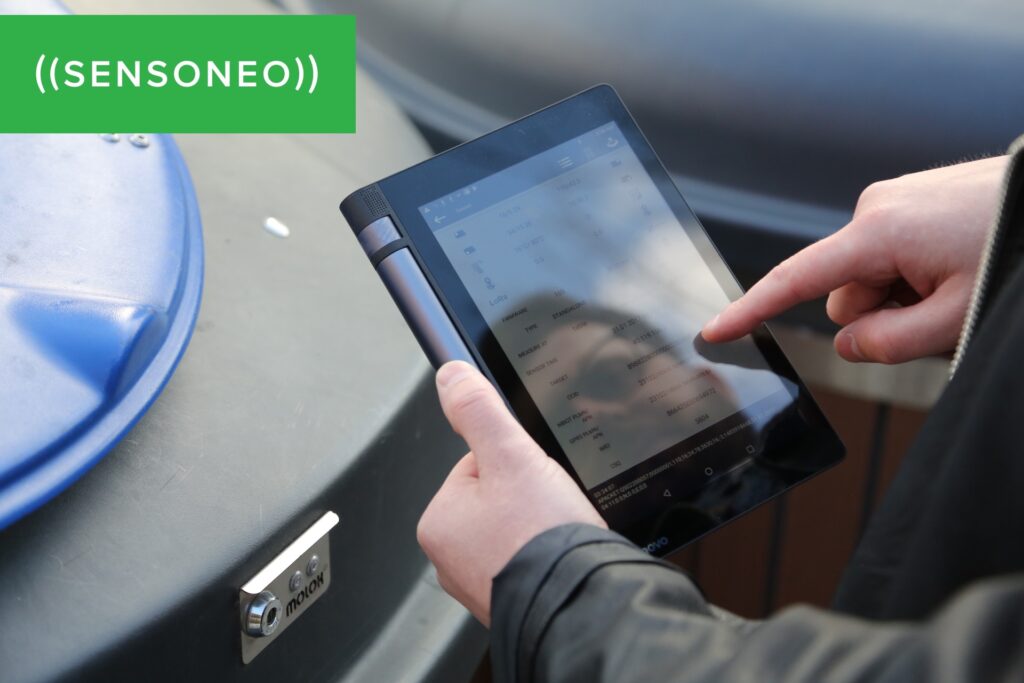
In 2018, the global logistics service provider DB Schenker with headquarter in Essen and the Croatian startup Gideon met in the semifinals of the Start.up! Germany Tour.
Having worked together in different projects since 2018, DB Schenker joins in June 2021 a $31 million Series A investment into the Croatian robotics and AI solutions company to accelerate the development and commercialization of its AI & 3D vision-based autonomous mobile robots (AMRs).
Read here our third part of our success story from the perspective of Mrs. Melita Meganic, Member Relations & Start-ups at the German-Croatian Chamber of Commerce and Industry.
How did AHK Croatia identify Gideon Brothers as a perspective startup for the Tour at the time?
In 2018, we decided to participate at the Start.up! Germany Tour for the 1st time. We had some experience before with startups in Croatia (organized a startup award of our own) but this time we had to find startups that fit the tour best in terms of sectors they were from (Insurtech, Smart City or Logistics & Mobility), maturity and so on. We organized a contest and asked the biggest player from incubators and other startup institutions to help us promoting it. Applications were coming in, but we also had to keep searching and inviting startups personally, in order to fulfil the specifications of the tour. Anyway, to cut the long story short, around this time I met someone from the startup ecosystem, Dražen Nikolic, who was the director of the Croatian Founders Institute, one of the largest startup incubators in the world, and asked him for help. He gave me some names who he thought would fit in. Luckily, Gideon Brothers was among them.
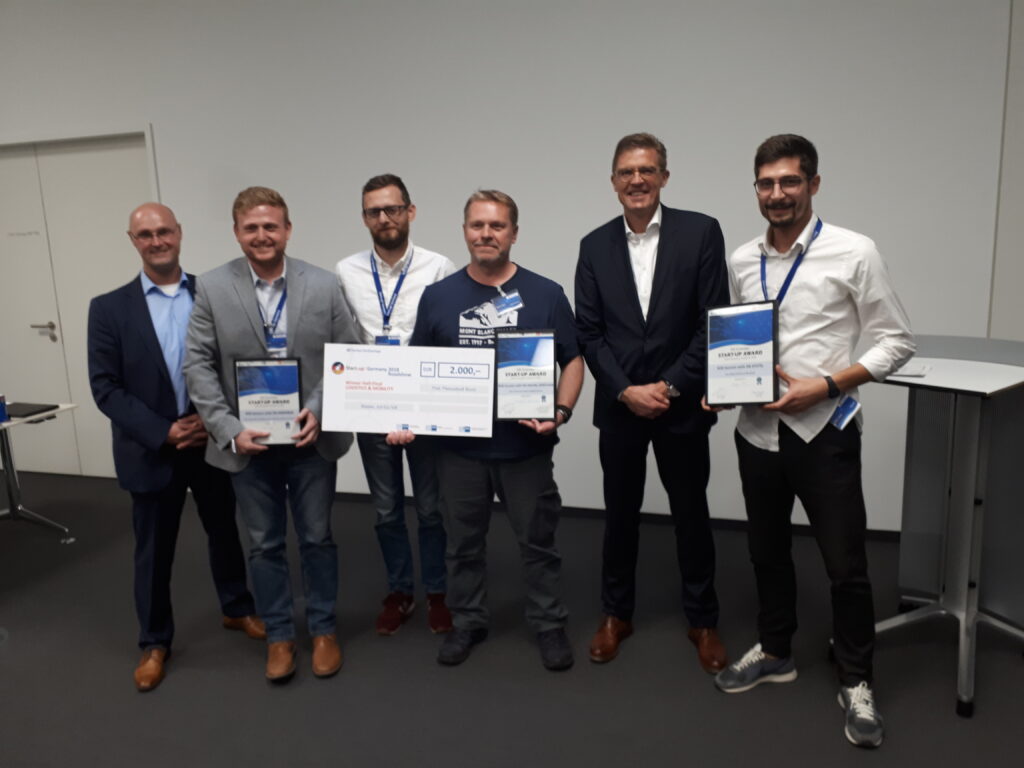
Did you immediately realize that this startup would be so successful?
We definitely had a great feeling. When we first contacted them, months before the tour, Gideon was in a phase when they did not want to reveal details of their technology and robot just in this early stage. But the information we received pointed to something extraordinary, disrupting… Their enthusiasm, certainty and vision were quite unique. Shortly after, they won our Croatian Startup Germany Tour contest.
How did you experience getting to know Gideon and DB Schenker back then?
It was the semifinals for the Logistics & Mobility sector in Essen, at DB Schenker. I believe there were 18 startups all together who pitched. What can I tell you? Milan, who pitched for Gideon, did his job perfectly. Gideon won the 1st prize and – I must mention this - another Croatian startup, ORQA FPV (also super successful now), won second place. We were all excited and happy. Anyway, afterwards we all talked to the guys from DB Schenker and exchanged contacts. I am glad they did not leave it at that. Obviously, the interest was mutual. The rest is history...
Are you still in contact with Gideon and if so, how?
Yes! Gideon won a one-year membership with our Chamber by winning the startup contest back in 2018. And they stayed members to this day. We are so happy about this.
We have built a great relationship in the past three years. One of my favorite moments was when Peter Altmaier, Federal Minister for Economic Affairs and Energy of Germany, visited Zagreb in November 2019. We were asked to propose some interesting program for him. We suggested that we take him to see the Gideon robots in action and so he did. It was fantastic.
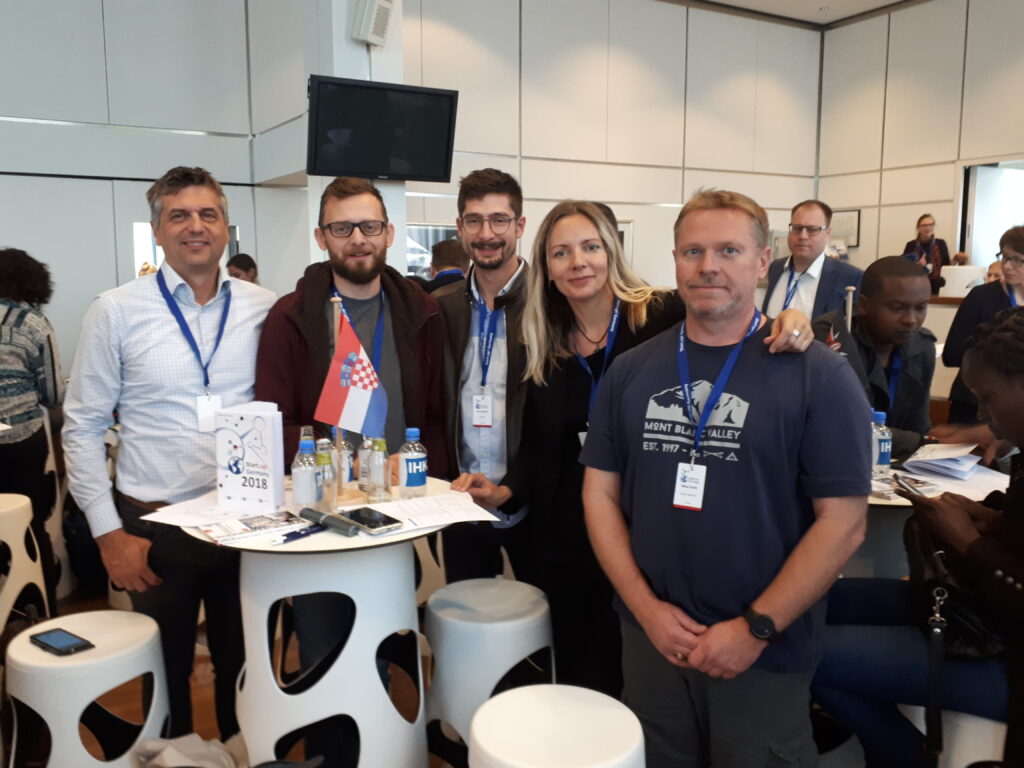
What is the AHK basically doing to support Croatian startups? How would you define your role in the Croatian startup ecosystem?
Our role is not that big although we are very proud to be listed at the Croatian AI Landscape as one of their first supporters. As in all countries, Croatia has many incubators and accelerators, and they are specialized for startups, so we do not interfere much. Everybody should do what they are best at. Of course, we know our way around, participate a lot at conferences and pitches to stay up to date. When we see a great project or event, we support it. What we mostly do is to help with our connections and networking, no matter whether you are a startup or a big company. That is what we do best and what startups and companies can profit from. For example, we received lately several inquiries from German startups and helped them make their first steps towards companies and Croatian institutions. Although one might think you can get through to anyone by yourself in this globalized world, it doesn’t always work. That is where we come in with our network in Croatia and around the world.
In 2018, the global logistics service provider DB Schenker with headquarter in Essen and the Croatian startup Gideon met in the semifinals of the Start.up! Germany Tour.
Having worked together in different projects since 2018, DB Schenker joins in June 2021 a $31 million Series A investment into the Croatian robotics and AI solutions company to accelerate the development and commercialization of its AI & 3D vision-based autonomous mobile robots (AMRs).
Today we are pleased to welcome Matija Kopic, CEO of Gideon Brothers, who will answer our questions about this successful cooperation.
Please describe Gideon Brothers and your (international) activities.
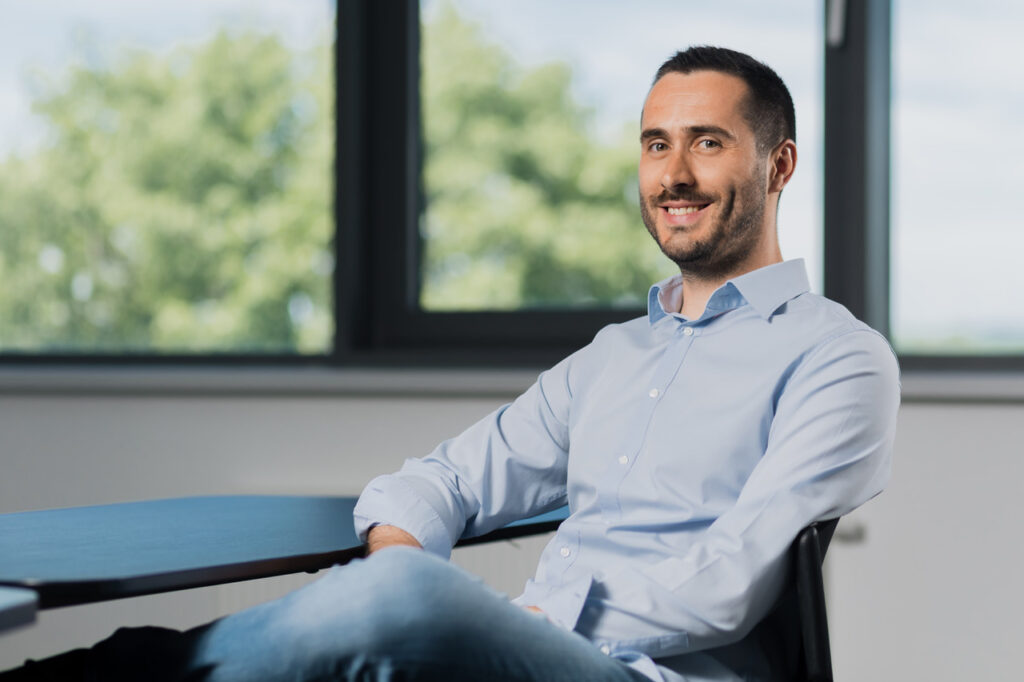
We specialize in the flexible automation of horizontal and vertical material-handling processes for logistics, warehousing, manufacturing, and retail businesses. With our advanced mobile robots and complete software solutions for autonomous indoor and outdoor operations, Gideon Brothers helps businesses solve their most complex supply chain challenges: rising customer expectations, increased product variability and logistics volumes, growing variety of distribution channels, and ultimately, labor shortage.
Currently, we have multiple projects running in the EU and the U.S., with some of the largest companies in the logistics, manufacturing and retail industry.
At DB Schenker, our autonomous mobile robots have already been put to good use, starting with our first project, launched in 2019 in Leipzig. At DB Schenker's contract logistics facility in Leipzig, our AMRs are automating tasks within the order fulfillment process, facilitating workflow and allowing employees to focus on more complex tasks.
How do you build such a start-up that will henceforth operate on international markets?
With a shared passion. We are working hard on empowering our talented team of robotics enthusiasts to dream bigger and run faster.
We are honored that we have the opportunity to work with innovation-driven customers who understand the transformative power of our technology and embrace its potential.
Our growth wouldn’t be possible without the support from our investors, a stellar group led by global leaders, including DB Schenker, the global logistics leader. They’re very excited about the coming age of flexible automation, and we’re already working on many exciting things together.
To keep supply chains running smoothly, the world needs new solutions. And new solutions can be provided only by new automation technologies providing flexible growth capacity.
We are proud that we are one of the pioneers helping bring about this transformation of material-handling automation, working on breakthrough solutions for some of the most complex supply chain challenges.
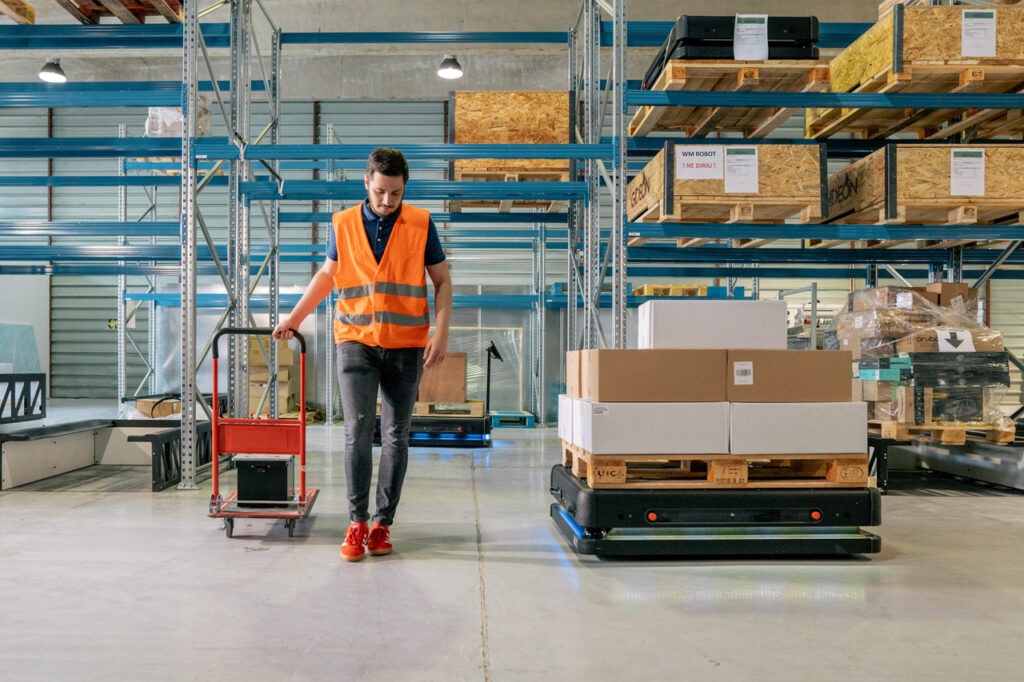
What is your passion? What are your personal goals?
Putting people first. Or rather, serving people in everything we do each day – and feeling grateful that we have the opportunity to do so. There can be no true leadership without serving.
This guiding principle of serving means, for example, respecting the balance of personal and work time. It also means being at disposal to your colleagues – talking with them, exchanging ideas, supporting them. It also means hiring smart people and listening to what they tell me.
Of course, it also means serving our customers. However, I don’t just mean providing a service or a product to another company, but working to understand and help resolve the challenges our partners – our customer’s employees face in their everyday work.
With this frame of mind – serving and gratitude – any business endeavor gains an incredible strength helping it succeed.
What has changed concretely after the investment of 32 million USD?
We are growing – increasing our amazing team and building our capacities for global growth. We are accelerating the development and commercialization of our vision-based autonomous mobile robots. Just recently, we have passed the number of one hundred full-time team members. We are expanding our Manufacturing, Sales, Marketing, and Customer Success operations across key markets of the European Union and the United States.
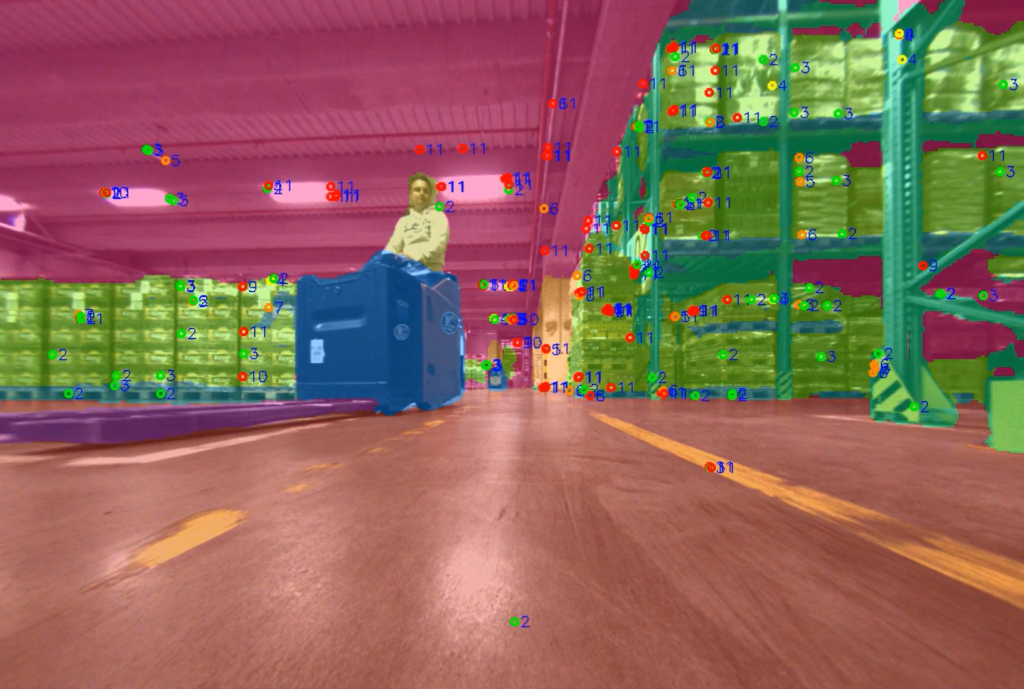
What makes the German market interesting for you?
Germany is the largest European economy. It's also the global logistics powerhouse, with 60,000 companies operating in the industry, including global leaders like DB Schenker. As the heart of the European economy and the global logistics industry, Germany is our primary market.
However, there is another inherent attraction. As a start-up company, our customers are our partners – we deepen our understanding of their challenges, and this drives our R&D. It would be difficult to find a better growth medium for a start-up than the unique mix of Mittelstand spirit, values, and knowhow that's so characteristic of the German business environment.
Could you remember the first moment when you met DB Schenker at the Start.up! Germany Tour? Was it "love at first sight"?
It was. We were a very fresh start-up at that point, barely a year old. The feedback we got from DB Schenker has given us a fantastic boost. Just imagine – this global leader, with nearly a century and a half of experience in logistics, shares our excitement about the future.
We are very grateful for the incredible support we’ve gotten from the Croatian branch of the AHK, not just during the 2018 Start.up! Germany Tour, but ever since. If it was love at first sight between DB Schenker and Gideon brothers, AHK Kroatien was the matchmaker.
What was your general experience of the Start.up! Germany Tour?
Start.up! Germany is so much more than a start-up competition. Hype potential is not in focus here. The competition doesn't strive to unearth a glitzy "next big thing" that can draw media attention.
It focuses on connecting innovators – on both sides. It's connecting start-ups developing disruptive and breakthrough technologies with innovation-driven companies that can recognize the potential of these solutions. Start-up! Germany Tour is a great opportunity to network and explore your market fit.
You haven't read the first part of DB-Schenkers and Gideon Brothers success story yet? Here is the great success story of DB Schenker and Gideon Brothers Part 1
We are pleased to welcome Stefanie Burgdorff today.
Stefanie answers our questions today and gives us exciting insights into the world of our close tour partner GTAI.
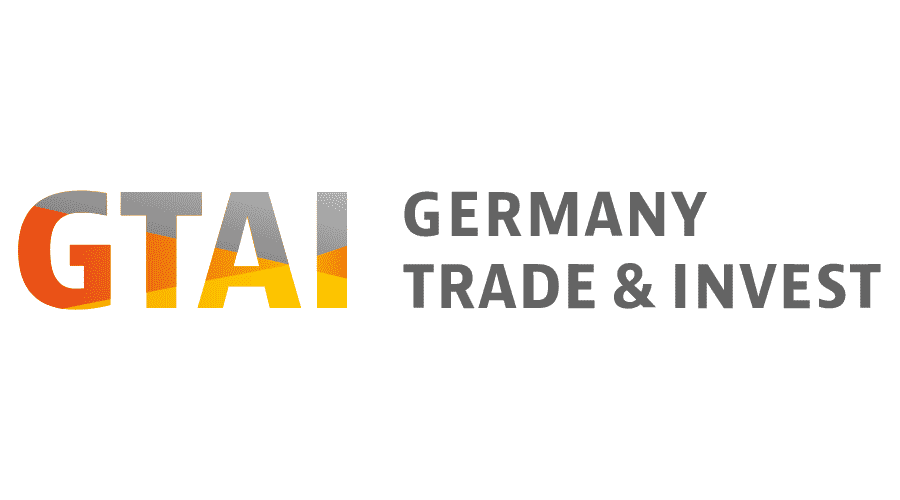
First of all, let's take a look at your Digital Hub. Could you briefly explain the concept behind it?
The Digital Hub Initiative is an initiative launched by the Federal Ministry of Economic Affairs and Energy (BMWi). There are 12 hubs located across Germany, each reflecting local industry specialization and covering sectors such as Logistics, Mobility, InsurTech, FinTech and Smart Infrastructure. The goal of the initiative is to foster innovation and the transfer of knowledge as well as technology cooperation and accelerate the digital transformation of the German economy. The Digital Hubs match start-ups with SMEs, big corporates, investors and academia.
What is the concrete benefit of Digital Hubs for Germany as an international business location?
First of all, the initiative and the hubs themselves create visibility for the German tech scene so that it can attract international start-ups, investors and corporates. That creates a pull factor beyond Germany’s large market size and great purchasing power. The concentration of start-ups and the innovative spirit in those hubs is very attractive to successful international start-ups, especially because of the link to the Germany’s famous medium-sized enterprise. A dynamic start-up ecosystem also attracts foreign investors looking for reliable, high returns. Their investment in German start-ups benefits Germany as a business location and creates technology transfer and jobs. Furthermore, the initiative and the hubs cooperate with many similar players abroad. Via these networks, we are promoting Germany as a business and digital location, thus fostering potential business creation and investment in Germany.

How far have we really come in terms of digitization in Germany in an international comparison?
Germany has brought forth many innovative digital companies in the last years. Examples like Flixbus, N26, Sennder, Celonis, Clark and Simplesurance are very successful internationally. Flixbus for instance, just acquired the biggest US bus provider Greyhound and become the market leader. According to the European-wide, DESI institute Index for digital economy and society, Germany ranks quite high in its share of fixed network broadband lines, whereas there is potential for growth in areas such as very high capacity networks and digital public services.
You are an official partner of the Start.up! Germany Tour and provide concrete program content within the three verticals Insurtech, Smart City and Logistics/Mobility. Can you give our readers an idea of how important they are for the German economy?
With its more than 3 million employees in ca. 60,000 companies, its outstanding infrastructure and global industry leaders such as DHL Group, Schenker and Kühne+Nagel, Germany is a world leader in logistics innovation, technology and services. Start-up unicorns Forto and sender are disrupting the logistics industry, and FlixMobility, Tier and Volocopter are introducing new forms of business and passenger mobility. Transporting goods and people has never seen so many innovations as today. Future innovation in this sector is the key to staying internationally competitive.
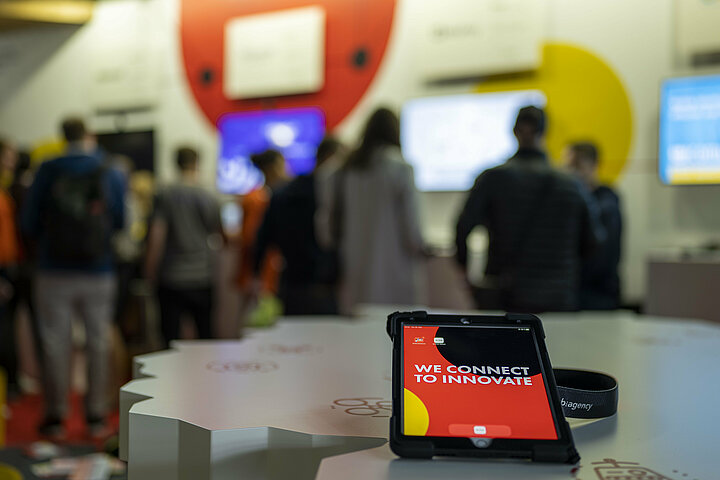
The German InsurTech market has been growing continuously and the insurance industry employs around half a million people. InsurTech is one the main pillars in financial services alongside the banking industry. Several hundred start-ups are active in the German market, offering groundbreaking innovations to end customers or businesses. That shows the fantastic market opportunities for InsurTech companies in Germany.
The same applies to smart cities. Urban centers occupy less than two percent of the planet’s surface, but provide homes to half of the world’s population and generate 70 percent of global GDP. Germany is one of the most urban countries on earth and plays an active part in shaping the cities of the future. Intelligent deployment of information and communication technologies is shaping how we life. Modern building technologies using smart devices regulate temperature, air and many other aspects of urban infrastructure.
What concrete support can the Digital Hubs provide in these three verticals?
Several of our hubs specialize in precisely these three verticals and support start-ups by linking them to key players like corporates, research institutes and VCs in the respective sectors. They also organize international workshops and events. Besides offering programs such as accelerators and innovation challenges, as members of the Digital Hub Initiative the Hubs bring start-up delegations to the leading tech conferences across the world and connect them with a variety of players from international ecosystems.
What are you particularly looking forward to on this year's tour?
We are especially looking forward to meeting all the great international start-ups in person. To a one, they have innovative business models and did a great job pitching them in the worldwide competition to qualify for the grand finale. It’s always a pleasure to meet the creative and smart minds who found the different companies. Besides that, we are naturally also looking forward to the great digital and on-site program, which will give us a chance to learn a lot as well.
